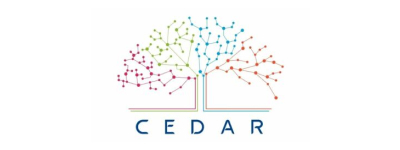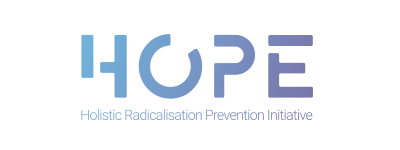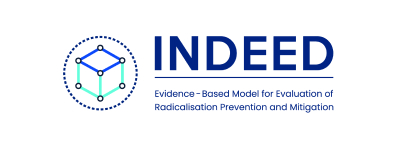IPS_Innovative Prison Systems is a key partner in a new initiative aimed at enhancing the capacity of judicial authorities and frontline workers in eight EU countries to combat child trafficking. The initiative will target trafficking networks that exploit vulnerable children for forced labour, sexual exploitation, and other forms of abuse.
Child trafficking remains one of the most alarming forms of organised crime in Europe, exploiting the continent’s most vulnerable population. With an estimated 14 billion euros generated annually from sexual exploitation alone, the scale of this crime is overwhelming. Nearly a quarter of trafficking victims are children, predominantly EU nationals, trafficked for sexual purposes.
Despite this, conviction rates for traffickers remain disappointingly low due to the complexity of these cases and the transnational nature of the crime. Vulnerable children, especially those in migration flows, face an elevated risk of being trafficked, often falling victim to labour, sexual exploitation, and forced begging.
There is an urgent need to raise awareness and provide comprehensive training to judicial officials. This training must take place in a collaborative environment, bringing together law enforcement, the judiciary, civil society, social services, child protection experts, educators, and healthcare professionals to address the issue effectively.
The new IPS-partnered initiative SafeBorders focuses on strengthening the capacity of judicial authorities and frontline workers to detect, prosecute, and prevent child trafficking. The project involves a consortium of key European institutions, bringing together experts from Greece, Italy, Bulgaria, Romania, Poland, Belgium, Finland, and Portugal. The use of advanced technology, coupled with capacity-building initiatives for frontline workers and judicial authorities, will ensure a comprehensive approach to addressing this deeply complex issue.
IPS_Innovative Prison Systems is proud to be one of the project’s partners, contributing its expertise in organised crime prevention, cross-border cooperation, technology integration, and judicial capacity-building to address one of the region’s most pressing challenges.
Specialised training programs, cross-border cooperation and technological innovation
One of the major outputs of the SafeBorders initiative will be the creation of specialised training programs for judicial authorities and frontline workers, including police, port officials, social workers, and health professionals. These programs will provide essential skills for identifying and assisting child trafficking victims, particularly those in vulnerable situations such as unaccompanied minors. The training will focus on equipping participants with trauma-informed approaches and enhancing their ability to recognise the signs of trafficking.
In addition to training efforts, the project will also establish a network of specialised prosecutors dedicated to handling human trafficking cases, with a particular emphasis on cases involving children. This network will streamline cross-border cooperation between legal professionals in countries, enabling more coordinated legal responses.
Moreover, a key technological innovation will be introduced through SafeBorders in the form of an AI-powered platform. This platform will support cross-border collaboration by collecting and analysing data from court decisions, helping to identify criminal patterns and trafficking networks operating across national borders. Prosecutors and investigators will be able to use this platform to detect high-risk areas and share intelligence, thereby improving the ability to respond swiftly and effectively to emerging trafficking threats.
This new initiative marks a major step forward in the fight against child exploitation, and with the combined efforts of all partners, SafeBorders hopes to make a lasting impact on protecting children from trafficking across the region.
Learn more about this project

SafeBorders
Strengthening Judicial expertise and Frontline support to combat Child Trafficking
SafeBorders is coordinated by the Centre for European Constitutional Law (Greece) in partnership with the Greek Ministry of Migration and Asylum (Greece), A21 – Abolishing Injustice in the 21st Century (Greece), IPS_Innovative Prison Systems (Portugal), CESIE – European Centre of Studies and Initiatives (Italy), CSD – Center for the Study of Democracy (Bulgaria), Missing Children Europe | European Federation for Missing and Sexually Exploited Children (Belgium), ADPARE – Association for the Development of Alternative Reintegration and Education Practices (Romania), Foundation VELA (Poland),
HEUNI – European Institute for Crime Prevention and Control (Finland), and Saúde em Português (Portugal).
Learn more from the project’s page.
Related projects

PRACTICIES
Partnership against Radicalisation in Cities

FUTURE-ART
Sentinels of the Future: Together to Eradicate Human Trafficking

MIRAD
Multi-Ideological Radicalisation Assessment towards Disengagement

CEDAR
Continuing Education Against Radicalisation

INTEGRA
Integrated Community, Probation and Prison Services Radicalisation Prevention Approach

EUTEx
Developing a European framework for disengagement and reintegration of extremist offenders and radicalised individuals in prison

HOPE
Holistic Radicalisation Prevention Initiative (Balkan countries)

INDEED
Strengthening a comprehensive approach to preventing and counteracting radicalisation based on a universal evidence-based model for evaluation of radicalisation prevention and mitigation

R2COM
Radicalisation and violent extremism prevention in the community

REFUGIN
Communitarian approach for a holistic young refugee long-term integration
Related news

IN2PREV Final Conference highlights cross-sector collaboration for refugee inclusion and radicalisation prevention
Read More »
Standing united against hate: A national effort to prevent and tackle hate crime and hate speech in Portugal
Read More »
New IPS-led initiative unites efforts to protect religious communities, schools, and places of worship
Read More »
IPS contributes to shaping EU’s future agenda on radicalisation prevention at Brussels Town Hall meeting
Read More »



